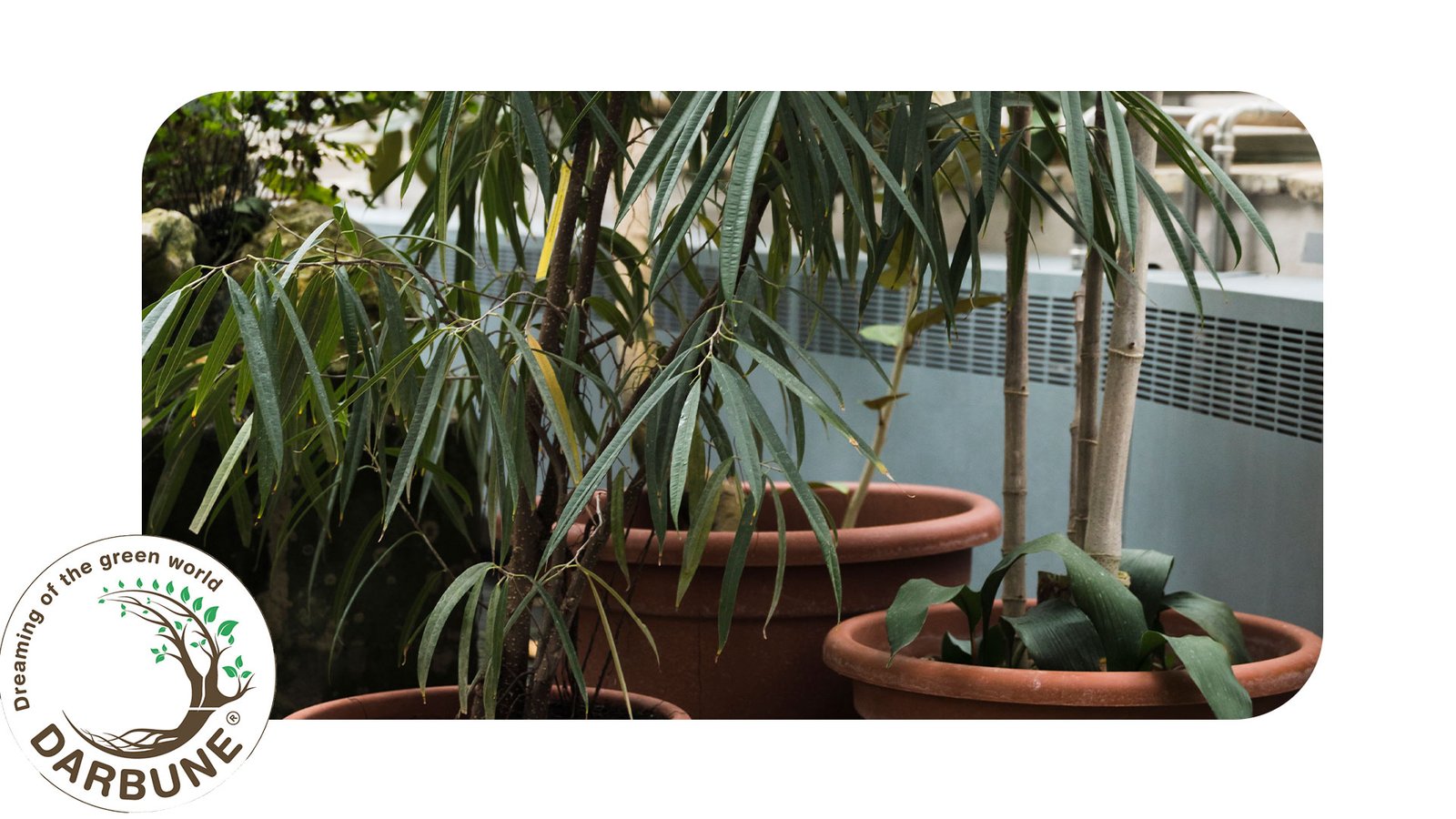Creating a refreshing and productive workspace at home is essential for efficiency and well-being. One simple yet effective way to enhance your home office environment is by incorporating bamboo plants. These resilient and elegant plants not only beautify your workspace but also offer a range of benefits, including air purification, stress reduction, and improved feng shui.
Bamboo plants are known for their low-maintenance nature, making them an excellent choice for busy professionals who want to enjoy the perks of greenery without extensive care. In this guide, we’ll explore why bamboo is ideal for home offices, the best types to choose, and how to care for them properly.

Why Bamboo Plants Are Perfect for Home Offices
Air Purification
Studies have shown that indoor plants, including bamboo, can significantly improve air quality by filtering toxins like formaldehyde, benzene, and carbon monoxide. Cleaner air enhances focus, reduces headaches, and minimizes fatigue, making it a must-have for any home office.
Stress Reduction & Mental Well-being
Working from home can be stressful, but having greenery in your workspace has been scientifically proven to reduce stress and increase productivity. Bamboo plants create a calming atmosphere that fosters creativity and concentration.
Feng Shui & Positive Energy
According to feng shui principles, bamboo symbolizes growth, resilience, and prosperity. Placing a bamboo plant in your home office can attract positive energy, improve balance, and bring success in work-related endeavors.
Low Maintenance & Durability
Unlike some houseplants that require constant attention, bamboo is highly adaptable and can thrive in various conditions with minimal care. This makes it perfect for individuals who may not have a green thumb but still want to enjoy the benefits of indoor plants.
Best Types of Bamboo Plants for Home Offices
Lucky Bamboo (Dracaena sanderiana):
- Ideal for small spaces due to its compact size.
- Grows well in water or soil with indirect light.
- Requires minimal maintenance.
Golden Bamboo (Phyllostachys aurea):
- Known for its aesthetic golden stems and fast growth.
- Perfect for adding a natural, vibrant look to your office.
- Prefers bright, indirect sunlight and regular watering.
Heavenly Bamboo (Nandina domestica):
- Not a true bamboo but offers similar ornamental appeal.
- Features beautiful foliage that changes colors with seasons.
- Requires moderate sunlight and occasional pruning.
Dwarf Bamboo (Pleioblastus pygmaeus):
- Ideal for desks or small office corners.
- Grows well in pots with indirect sunlight.
- Requires occasional trimming to maintain its shape.
How to Care for Bamboo Plants in Your Home Office

Caring for bamboo plants in a home office is simple, but understanding their basic needs is crucial for their longevity and health. These plants thrive with minimal effort, making them ideal for individuals who may not have experience with plant care or are exploring indoor farming as a way to incorporate greenery into their space.
By providing the right amount of light, water, and humidity, bamboo can flourish and continue enhancing your workspace. Just like selecting the best vegetables for vertical farming ensures optimal growth in limited spaces, choosing the right care routine for bamboo helps maintain its health and vibrancy. Below are the key aspects of bamboo plant care to keep in mind:
Light Requirements:
Bamboo plants prefer indirect sunlight. Placing them near a window with filtered light is ideal. Too much direct sunlight can scorch the leaves, while too little light can stunt growth.
Watering Needs:
- Keep the soil moist but not waterlogged.
- If growing in water, change the water every 7–10 days to prevent stagnation.
- Avoid using tap water with high chlorine content; filtered or distilled water is best.
Soil and Potting:
- Use well-draining soil for potted bamboo.
- A pot with drainage holes prevents root rot.
- Repot every 2–3 years to accommodate growth.
Temperature and Humidity:
- Bamboo thrives in temperatures between 65–85°F (18–29°C).
- Maintain moderate humidity levels; occasional misting can help.
Pruning and Maintenance:
- Trim yellowing leaves to keep the plant healthy.
- Prune excess growth to maintain shape and size.
- Clean leaves occasionally to remove dust and improve absorption.
Common Problems and Solutions
| Problem | Cause | Solution |
| Yellow Leaves | Overwatering or too much sunlight | Reduce watering and move to indirect light. |
| Brown Tips | Dry air or fluoride in water | Increase humidity and use filtered water. |
| Slow Growth | Insufficient light or nutrients | Move to a brighter location and fertilize occasionally. |
| Mold Growth | Stagnant water in pots | Ensure proper drainage and change water regularly. |
Conclusion
Bamboo plants are a fantastic addition to any home office, offering aesthetic appeal, air-purifying benefits, and a boost to mental well-being. With minimal maintenance requirements, they are an ideal choice for busy professionals looking to enhance their workspace naturally. By choosing the right type of bamboo and providing proper care, you can create a serene and productive office environment.

